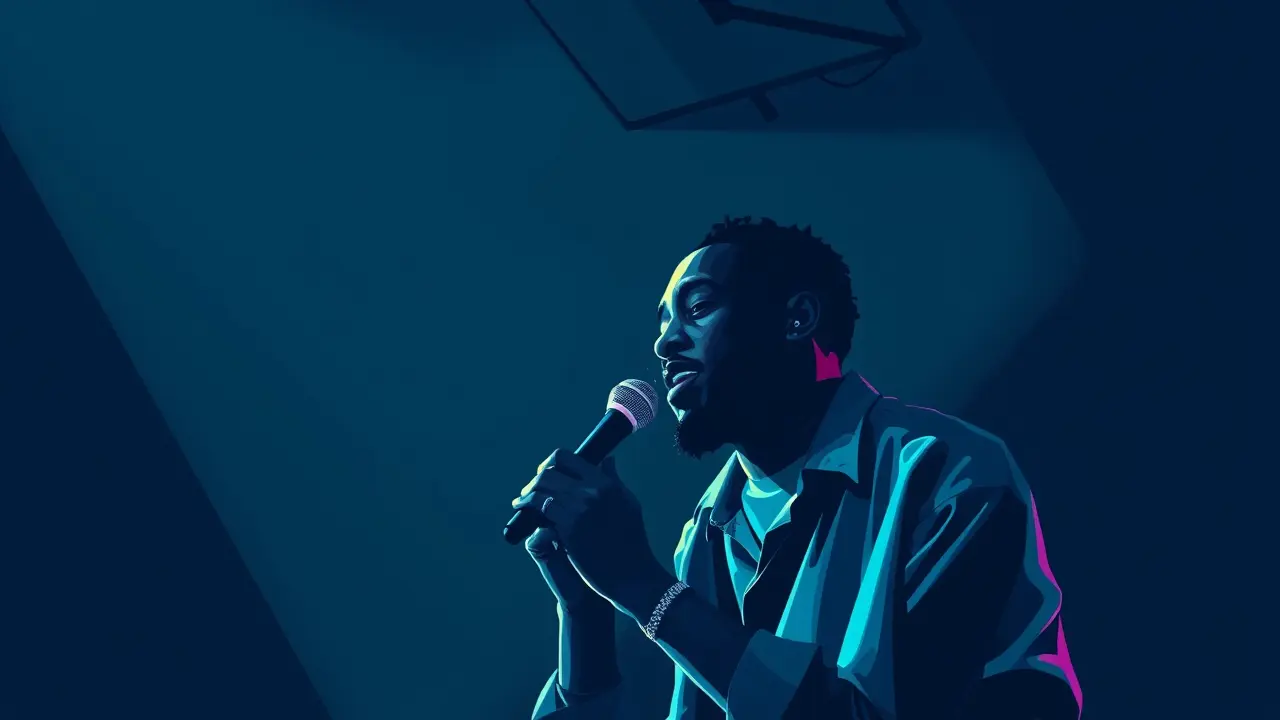D'Angelo Details His Second Album Voodoo
In the hushed, reverent tones typically reserved for a sacred text, D'Angelo began to pull back the curtain on his long-awaited second act, the masterpiece that would be known as *Voodoo*. The air was thick with anticipation; how does an artist follow a debut as perfectly sculpted and culturally seismic as *Brown Sugar*, an album that didn't just launch a career but effectively codified the very DNA of the neo-soul movement? For D'Angelo, the answer wasn't to replicate that polished, honey-dipped sound, but to deconstruct it entirely, to journey back to the source and embrace the beautiful, chaotic, and profoundly human imperfections of the groove itself.He spoke of this process not as a mere recording session, but as a spiritual excavation, a deliberate shedding of the commercial expectations that had been placed upon his shoulders. He was diving headfirst into the raw, unfiltered wellsprings of his influences—the polyrhythmic genius of J Dilla's off-kilter drum machines, the primal scream of James Brown's funk, the psychedelic soul explorations of Sly and the Family Stone, and the deep, watery mystique of Miles Davis's *On the Corner*.This wasn't just about making another album; it was about capturing a feeling, a vibe so tangible and alive it felt like a living, breathing entity in the room. The sessions, famously held at Electric Lady Studios, became legendary all-night marathons, less a formal production and more an organic, free-flowing jam, a gathering of the 'Soulquarians'—a collective including Questlove, James Poyser, and the late, great J Dillard himself—who were united in a singular mission to resurrect the soul of Black music from the slick, over-produced clutches of late-90s R&B.D'Angelo detailed the almost obsessive pursuit of the 'pocket,' that elusive space where the rhythm section locks into a hypnotic, trance-inducing loop, where a delayed snare hit or a slightly dragging bass line wasn't a mistake but the entire point. He described the creation of tracks like the timeless 'Untitled (How Does It Feel)' not as a composition, but as a slow, meticulous build from a foundational groove, layer upon layer of live instrumentation, until the track achieved a state of pure, aching sensuality.And then there was 'Devil's Pie,' a scathing, funky indictment of greed and hypocrisy, and 'The Root,' a sprawling, seven-minute epic that felt less like a song and more like a journey through the history of Black American music, from the church pews to the funk club. To hear D'Angelo detail *Voodoo* is to understand that he wasn't just crafting songs; he was weaving a spell, creating a work that was deliberately messy, intentionally raw, and spiritually potent.It was an album that demanded active listening, that rewarded patience, and that, in its defiant rejection of polish, redefined what soul music could be for a new generation. Its release in 2000 was a cultural event that polarized critics initially—some bewildered by its loose, jam-session feel—but time has cemented its status as a landmark, a record that continues to cast a long shadow over every artist who dares to prioritize feel over formula, and soul over sheen. It was the sound of an artist disappearing into his own art, and in doing so, creating something truly immortal.
Latest News
The charts are whispering what the true believers have felt in their bones for weeks—Dogecoin is carving out a bottom.
17 hours ago5 comments
The Institute for Fiscal Studies has thrown a stark warning onto Rachel Reeves's desk, urging the Chancellor to confront a potential £22 billion shortfall in
17 hours ago3 comments
Alright, let's break down this absolute heater of a performance from the Chicago Blackhawks, because if you missed this one, you missed a party.
18 hours ago5 comments
The ice was hot last night in the NHL, folks, serving up a slate of games that felt less like a regular season Tuesday and more like a playoff preview with a
18 hours ago3 comments
The XRP chart is painting a tantalizing picture for those with the stomach to withstand the relentless pressure from crypto's leviathans.
18 hours ago4 comments
It’s in the small shifts, the quiet recalibrations of a Thursday morning, where the most meaningful change often takes root.
18 hours ago4 comments
In a move that sent ripples of quiet confidence through the crypto ecosystem, blockchain intelligence firms tracked a monumental treasury allocation from
18 hours ago4 comments
In a move that would have drawn a nod of approval from historical figures like Churchill, who understood the delicate balance of power within democratic
18 hours ago2 comments
JA
Jamal Washington123k1 day ago
voodoo is such a timeless album fr the soulquarians were on another level
0
JA
Jamie Larson123k1 day ago
this is so fascinating, i had no idea about all the history behind this album. definitely makes me wanna go listen to it again with new ears
0
JA
Jamal Washington123k1 day ago
voodoo is literally that album fr the soulquarians were on another level
0
JA
Jamal Washington123k1 day ago
interesting read but i'm always skeptical of these 'landmark album' labels, how do you even measure that tbh
0
